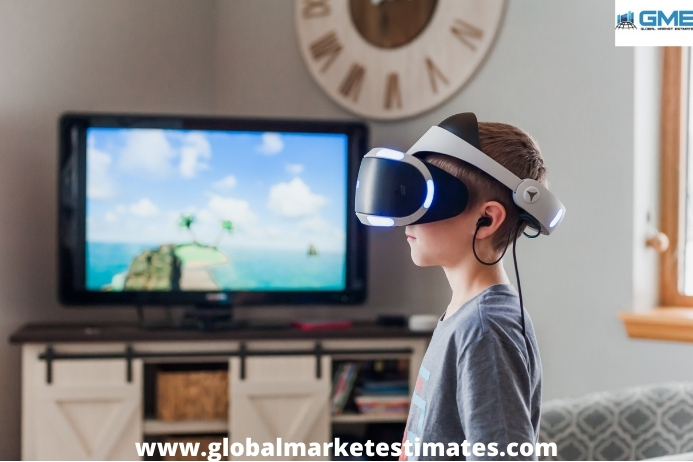Based on the analytical and research study on the global virtual reality software market, it is estimated that the CAGR of this market will be ~10.5%. VR software is used to create an immersive and artificial environment for the patients. Such set up is created to make the user/patient feel that he/she is present in the environment live. Such software is designed to track the patients’ eyes, gestures, body movements and intellectual moves. The data produced by this software are used for the doctors or therapist to design drugs and treatment methodologies. With the integration of software with the workstation and laptops, the VR set up is complete. Hence the growth of the market for the VR software is directly proportional to the growth of VR based therapy as a whole.
VR therapies using such software are carried out for specific medical areas related to mental disorders, phobia alcohol addiction, post-surgery therapy, robotic surgery, etc. According to the stats provided by WHO, 1 in every 4 people is suffering from some form of mental issue every consecutive year. Moreover, more than 19 million Americans suffer from a specific kind of phobia which is usually left untreated. VR therapies have been scientifically proven successful in diagnosing and treating these mental disorders and phobias. Due to the high sensitivity offered by this VR software, the doctor or therapist can access accurate patient data of level stress, blood pressure, heart rate, etc. Because of the merger of information technology with the diagnostic industry, the treatment cost and time has reduced drastically.
Hence the market will see immense growth mostly due to the rising mental disorders and awareness amongst the benefits of the use of this technology.
Moreover, the rising number of robotic surgeries will give rise to the high demand for VR software installation. As per the latest data provided by iData, the medical industry has seen a rise of ~8.8% in the number of robot assited surgeries, since the augment of VR therapies in the hospital and research centers. There were more than 693,000 robotic surgeries carried out in the year 2017, which explains the fact that the VR software market is making their way to the journey of growth in the future.
With the support of the government and health ministry, the advent of digitization or IoT with the healthcare industry has opened doors of opportunities for many healthcare treatments. With the growing government interest to fund such therapies, the software market is most likely to grow during the forecast period.
This market is segmented into component (software [web based software, mobile-based software] and service [post sale service, training & education]), deployment (web and cloud-based), subscription model (free and paid [monthly, annually, one-time license]), application (mental disorder & addiction management, post-stroke recovery therapy, Pediatric management, robotic surgery simulation, education & medical skills training, and dentistry), and the end user (hospitals, therapy clinics, research centers, training schools, medical schools, & surgical centers, VR manufacturing companies, and other end users).
Based on the type of component and deployment, the cloud VR software segment will be the fastest-growing segment. This growth will be mainly due to the increasing adoption of advanced VR technology for robotic surgeries, advantages of data sharing, storing and expressing amongst various surgeons from different places, and ease of operation. Also, cloud-based VR software allows developers to manage and use the VR database from any location and environment.
The prime players offering VR software for the healthcare industry are Orca Health, Echopixel, Occulus, Six VR, zSpace, Mindmaze, Psious, Firsthand Technology, Atheer, Medical Realities, Osso VR, XRHealth, VR Vision Inc, Health Scholars, and Surgical Theatre among others. Whereas, other company includes TrueVision, Verapy, Avantis Systems Ltd., Immertive Theme, Ghost Productions, Inc., ORamaVR, 3D Systems, Inc., Virtually Better, iMotions, ImmersiveTouch, and Fundamentalvar. Many companies have received awards and recognition for launching the most advanced VR software designed especially for mental health. For example, in August 2020, ImmersiveTouch (US), won a UK Digital Experience Award for its VR software.
With the rising demand for VR technology, the VR software segment will also pave its way towards growth and opportunities in the healthcare industry.
Check the report summary at: https://www.globalmarketestimates.com/market-report/global-virtual-reality-software-market-2223

